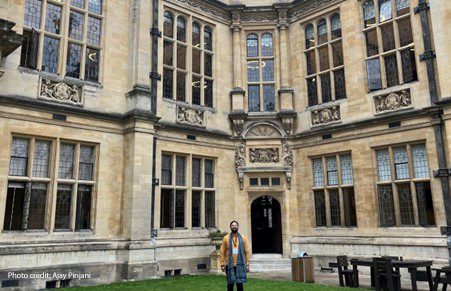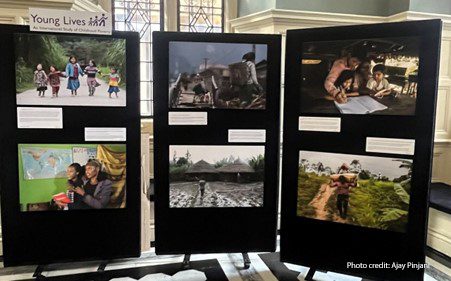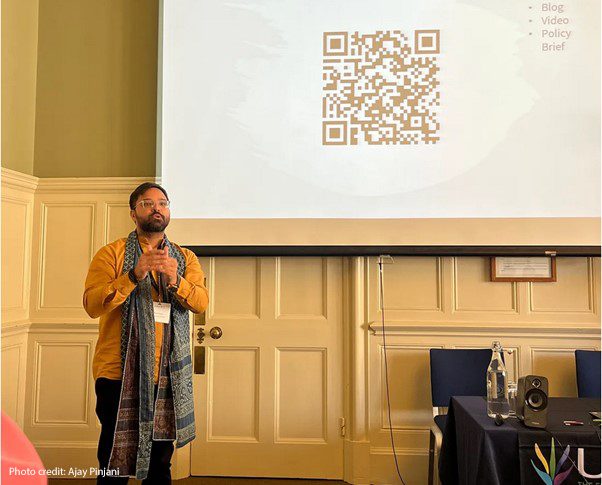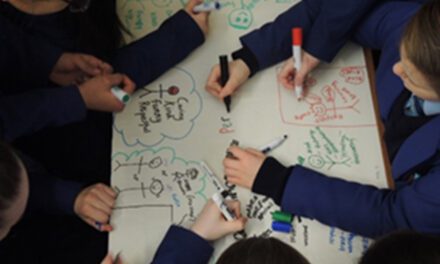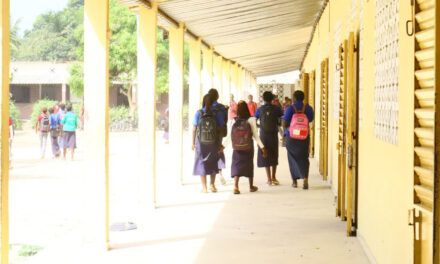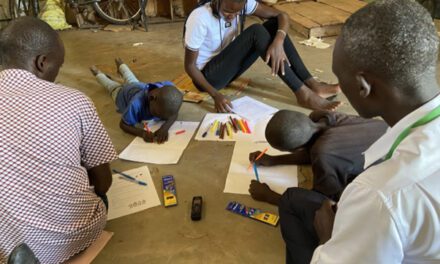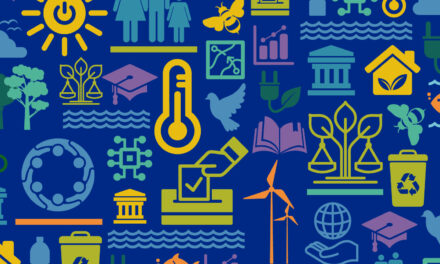This blog was written by Ajay Pinjani, Manager (Learning) at Global Schools Forum . It was originally published on Medium.
I have not attended an in-person conference for a long time, and certainly not at Oxford. For me it was exciting, energizing and overwhelming all together. A PhD candidate at Oxford University shared, when they enroll one of their orientation trips is called ‘exploring uncomfortable Oxford’, where the grandeur architecture is explored through the lens of interlinked power, privilege and wealth. So being awed resonates a mix of emotions which cannot be summarized simply as good or bad. Under this visual context I drew some incredible takeaways from the 3 day UKFIET Conference. The following are my learnings limited to my inference and from the few sessions I was able to be present in.
In summary:
- Our move towards mono-culture is our biggest threat.
- Foundational learning is much more than what happens with us and to us at school.
- Language is a thread of familiarity and identity to be cherished than denied.
- While learning may happen, patriarchal mindset and systems continue to keep children unsafe, even in schools.
- We need to rebuild youth’s faith in tomorrow and be better listeners both through our mindset and our pedagogy.
“We as human beings are minority in our own body”. A bold and beautiful reminder shared by Dr. Vandana Shiva Ji !! The mono-culture of our own mind is ignoring the abundance of generosity nature showers each one of us with, and the way we are harming both bio-diversity and cultural diversity has become equivalent to an ‘epistemic apartheid’ channelized through formal education today. A world different is possible, and we must begin with every child learning from nature, and embracing the garden. I found her words powerfully invigorating while connecting seamlessly, environmental and social injustice along with the existing and potential role of education.
The ‘Young Lives’ longitudinal study across 4 countries in the Global South by University of Oxford reaffirmed the significance of foundational learning beyond literacy and numeracy and the influence of context beyond the school including the long term impact, climate related shocks have on foundational cognitive skills.
The power of teaching in familiar language in the foundational years continued to demonstrate impact, both where its power is excluded in the case of Malawi and Zimbabwe, and where it’s potential is being implemented in practice in parts of Pakistan. Dr. Angeline Barrett also highlighted the several gaps in the language transition journey from familiar to unfamiliar language, especially in the context of sub-Saharan Africa where language competency demanded in academic subjects is much higher than the competencies achieved in the English subject, creating a huge design gap.
Emergency contexts make education a lesser priority, and regardless of evidence the early childhood education is ignored. In the case of Moldova, at the center of Ukrainian crises, Ms. Felicia Bechtoldt (Ministry of Labour and Social Protection) demonstrated how where Ministry of Education left this gap, the Social Protection office paved way for age 1–3 to begin learning early. But the more worrisome reminder was that children in school are also unsafe. Gender-based violence is one critical unfortunate practice, where children have become victims to those they are expected to trust. An intervention programme in Sierra Leone voiced the need to better understand, better report and better respond by gradually but firmly building ownership and trust in the systems which themselves are patriarchal.
“Today the faith that tomorrow will be better than yesterday is simply no more” — Elif Shafak (How to stay sane in an age of division). This feeling was resonated in Wendy Morel’s talk on the desired attitude shift when engaging with youth around climate and their role as conscious actors. At present, many young see the future with a dismal eye, and not responsible for the mess made by others.
I would like to conclude my reflection with two refreshing participative methodology tools introduced by Dr. Asma Zubairi and Dr. Laraib Niaz. When understanding experiences of girls with disabilities, they collected perspectives through Photovoice and River of Life, a step beyond the spoken word where feelings and experiences were captured which otherwise would have never come to surface.

